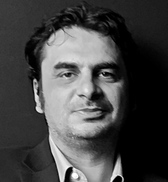The architecture of how we live our lives is badly in need of renovation and repair. What we really value is out of sync with how we live our lives. And the need is urgent for some new blueprints to reconcile the two (ARIANNA HUFFINGTON) Our two main metrics for success are money and power, and they drive us to work longer hours, sleep with our phones and tablets, miss important moments with our families, and impacts our health. Arianna proposes a third metric for success: thriving. When you thrive, you take care of your health, get enough sleep, and do not live to work.  For years I've been telling my clients (and friends alike) that frantically running around doing things brings only a sort of illusion of accomplishment and quite a lot of meaninglessness. Meetings back to back, managing employees and suppliers on 2-3 timezones, cramming in "activities" and scheduling weeks in advance "playdates" for our children -- by the way, nobody really notices how close to ridiculous the word playdate is?.. Do you really need a date to play?!.. Danish family therapist Jesper Juul names play as the one of the only 4 mandatory things children really need. The other 3 are food, shelter and affection. It seems, however, that anger, anxiety and inability to form meaningful relationships are the three major symptoms of a life where being busy has become a High-End Social Status. However, keeping oneself busy seems to be precisely a way to deny the existence of and avoid dealing with the sources of that anxiety, anger and meaninglessness. World renown physician and psychoanalyst Rollo May, points out a truth that we seem to be eager to ignore: The pause is especially important for the freedom of being. what I have called essential freedom. For it is in the pause that we experience the context out of which freedom comes. [...] When we don't pause, when we are perpetually hurrying from one appointment to another, from one 'planned activity' to another, we sacrifice the richness of wonder. And we lose communication with our destiny. It is the contemporary Tim Kreider who reframes the same issue in his New York Times article The 'Busy' Trap: "It’s almost always people whose lamented busyness is purely self-imposed: work and obligations they’ve taken on voluntarily, classes and activities they’ve “encouraged” their kids to participate in. They’re busy because of their own ambition or drive or anxiety, because they’re addicted to busyness and dread what they might have to face in its absence." I've seen men and women so removed from their own selves that they have created a parallel life. They are the one who make business, political, economical and social decisions that concern all of us, and sometimes those decisions are as removed from reality as their busy schedule.
I've seen stay home parents scheduling every minute of their children's free time, in a frenzy that breeds generations of unconscious capitalists. I've seen them all, and they all think it's normal, because the culture around them validates their life as normal. What have YOU seen? What can YOU do?
0 Comments
Leave a Reply. |
Cosmin Gheorghe"You never draw out of the deep of yourself that which you want; you always draw that which you are." Archives
November 2015
|



 RSS Feed
RSS Feed
